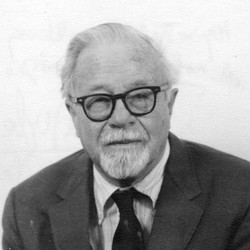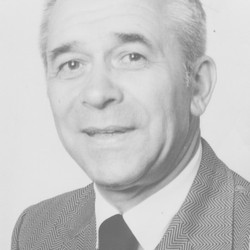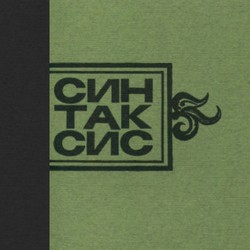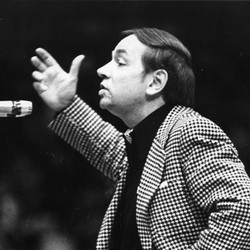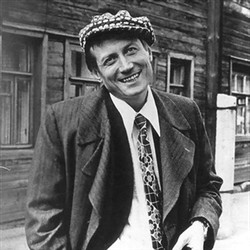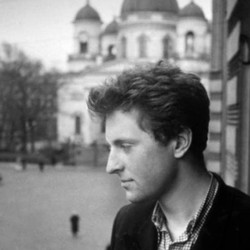У Бродского, конечно, много недочетов. Но он, по-моему, значительнее и Евтушенко[,] и Вознесенского и лучше и интереснее поэтов «Феникса» и «Синтаксиса». Надо учесть и то, что он еще очень молод: ему в этом году минуло 24 года, большая часть его стихов, дошедших до нас, написана в возрасте 20–22 лет. Весь том, который я получил прошлым летом, помечен 1962 годом, но там есть и стихи 1961 г., а может быть, и более ранние. Стихи о слепых мне тоже нравятся, но всего интереснее у него его вещи в большой форме – «Большая элегия», посвященная Джону Донну (и о нем), поэма «Исаак и Авраам» на библейскую тему и драматическая поэма «Шествие», среди персонажей которой – Гамлет, князь Мышкин, Дон Кихот – наряду с символическими, такими, как «Поэт», «Арлекин», «Честняга», «Вор», «Лжец», «Усталый Человек» и т. д. Все эти вещи войдут в приготовленный мною том; он уже набран и скоро выйдет.
Of course, Brodsky has many shortcomings but in my opinion he is much more significant than Evtushenko and Voznesensky, and is more interesting and better than the poets of Feniks and Sintaksis. One must keep in mind that he is also quite young; this year he had turned 24 and the vast majority of the works that reached us here were written at the age of 20–22. The entire volume, which I received last summer, is dated 1962 but contains poems from 1961 or even earlier. I like his poem about the blind as well, but the most interesting of all are his works in large form; “A Large Elegy” dedicated to John Don (and about him), a poem on the biblical theme “Isaac and Abraham,” and the dramatic poem “The Procession,” among whose characters are Hamlet, Prince Igor, and Don Quixote alongside such symbolic figures as “The Poet,” “The Harlequin,” “The Honest Man,” “The Thief,” “The Liar,” “The Weary Man,” and so on. All of these texts will go into the volume I have prepared. It has already been typeset and will be out soon.
